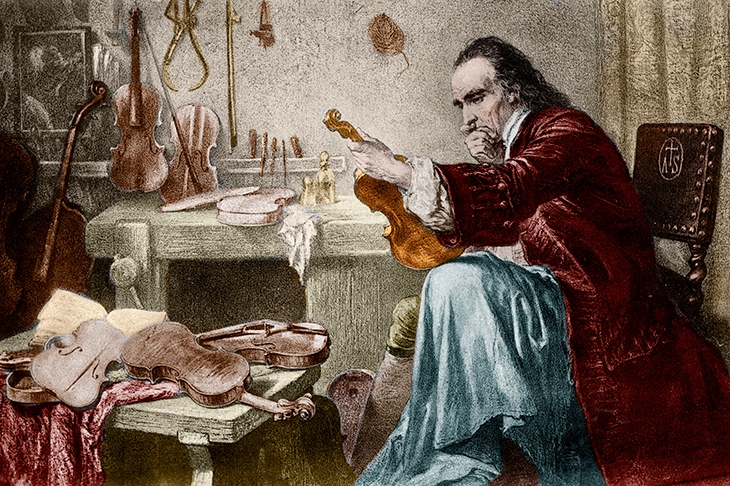An extraordinary omission from Neil MacGregor’s A History of the World in 100 Objects is the lyre, the instrument closest to Homer’s heart. Without it, the evolution of bowed stringed instruments — rebec, lira da braccio, violetta — would not have taken place. Ipso facto, there would be no violin, nor its larger siblings; no chamber music, no orchestra, no Hot Club de France. In such a parallel world, Helena Attlee would be much time-richer, given that she has spent more than four years researching the provenance of a single violin.
At a Klezmer performance in a small Welsh town the author is moved by the joyous but wistful celebratory music of the Ashkenazi Jews: ‘I heard the violin speak for the first time, with a voice powerful enough to open pores and unbuckle joints.’ In conversation with Greg, the violinist, she learns that the instrument is valued as worthless, lacking a luthier’s label. It is sweet-sounding, but with no pedigree. He had bought it from Lev, after borrowing it years earlier. The latter, a Russian émigré settled in Scotland, had bought it in turn from an old Roma violinist in Russia in about 1980. But how did it end up there? Who else had left their ‘intimate residue of sweat’ and musical DNA in it? Who made it? These questions drive Attlee first to Cremona, home of the dynasties of the great 17th- and 18th-century luthiers and their progeny, the modern violin.
The death of the pre-eminent Nicolò Amati in 1684 brought Antonio Stradivari to the fore as the luthier per eccellenza in Lombardy and far beyond. He strove to meet the demands of the best players and composers (Albinoni, Corelli, Torelli), all of whom wanted instruments that could stand out against the volume of a full orchestra.








Comments
Join the debate for just £1 a month
Be part of the conversation with other Spectator readers by getting your first three months for £3.
UNLOCK ACCESS Just £1 a monthAlready a subscriber? Log in